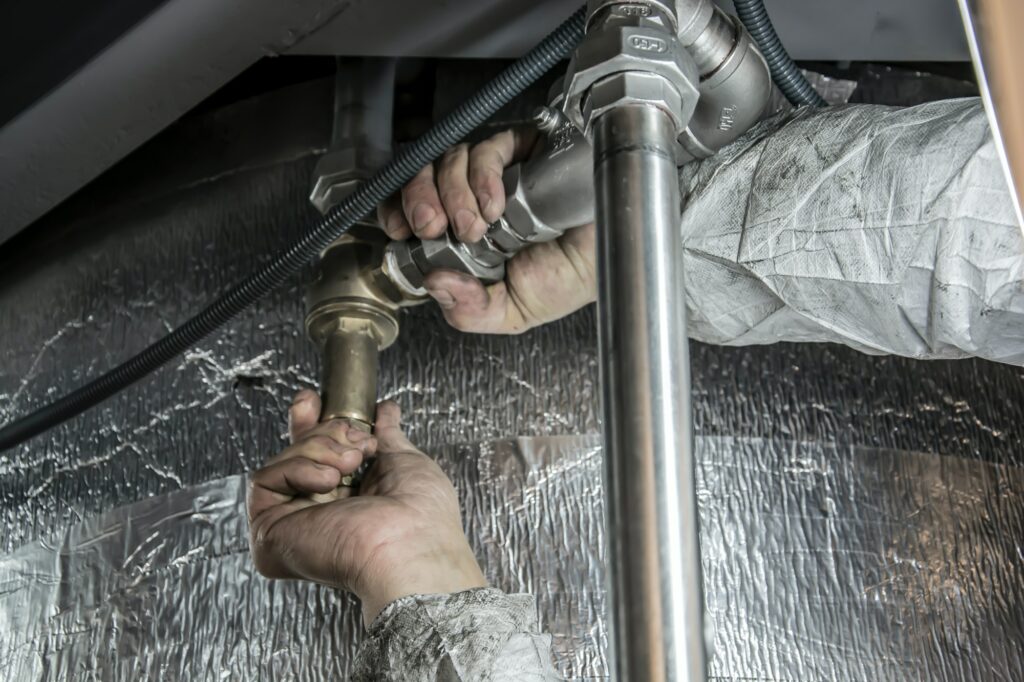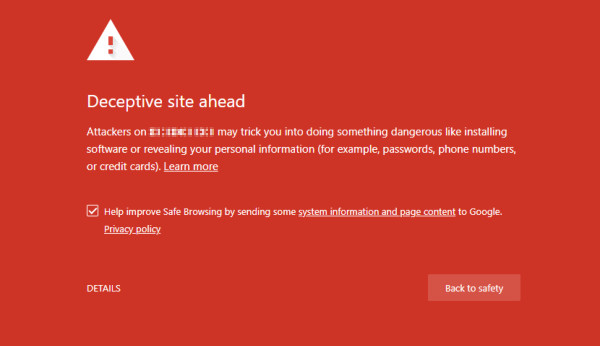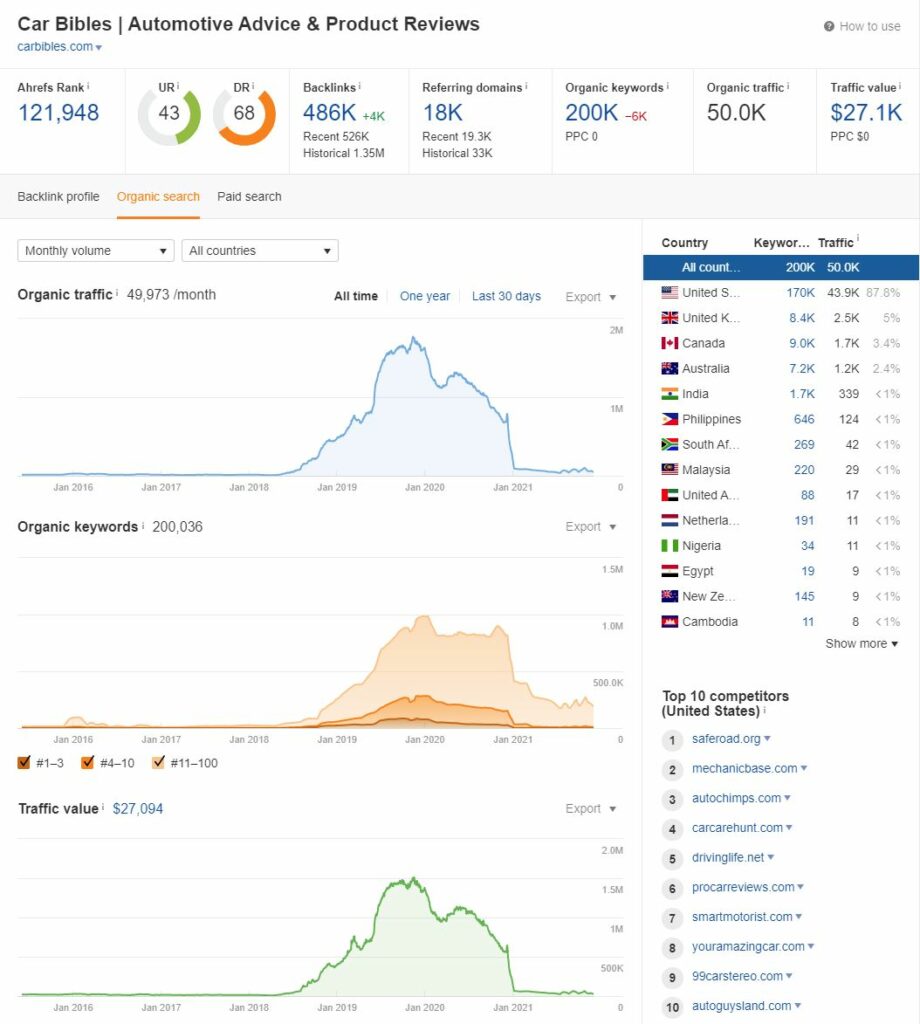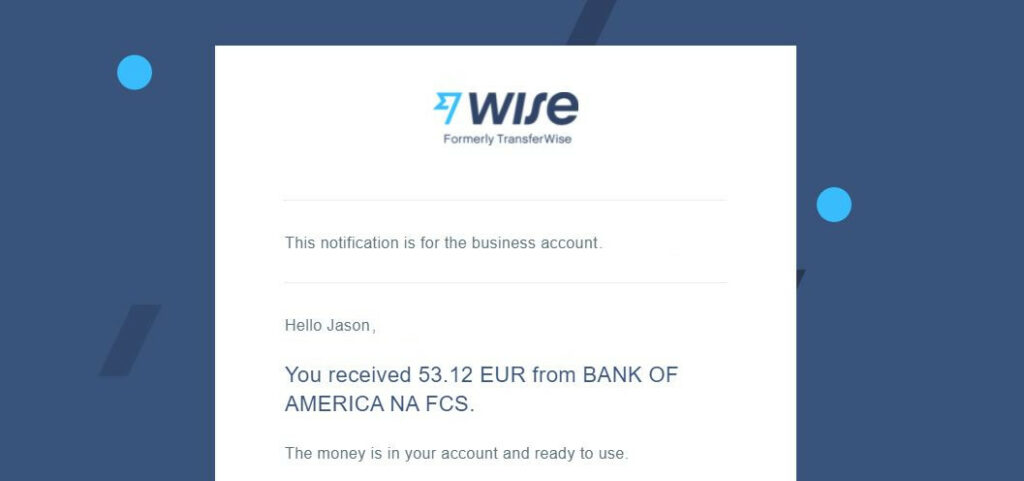Buying an established website is a lucrative investment. It’s a great way to earn income that isn’t directly tied to the hours you put in, but only if you know what you’re doing.
At some point in the past, the industry that facilitates the sale of websites cooked up a story that is far from true — that websites are a passive income investment. Needless to say, a lot of people blindly bought into this.
What these people probably didn’t realize is that when you’re building from scratch, buying websites to flip for a profit, or acquiring them for cash flow, somebody is going to have do the work.
After writing about investing in websites, many keen buyers with zero experience in operating websites reached out to me, asking whether it was possible to simply collect a passive income check each month without having to do much.
It’s not that it can’t be done; it can. But there are some realities to this game that you need to understand before taking the leap.
If you’re thinking about buying an established website for income, this post is for you. By the end of this article, you’ll have a balanced view of this landscape.
Defining ‘Passive’ Income
Passive income requires minimal labor to earn and maintain.
Typical passive income sources include:
- dividends,
- interest,
- rental income, and
- royalties.
But more specifically it’s the income generated through these sources when little to no time is spent in earning it.
So for example, if you have a rental property, a management company does the work and you simply get paid.
But if you’re fixing pipes, doing renovations, and chasing payments every week, that’s not passive income, it’s a job.

Passive Income Websites — A Misnomer
When buying websites for income, you need to know that there’s a lot of work involved after the sale.
For this reason, I cringe when the words ‘passive income’ and ‘websites’ are used in the same sentence. ‘Semi-passive’ is more accurate in this context. And even then it only applies to a site that is in maintenance mode.
Buying an online business doesn’t mean you’ll be earning money by not doing anything. It means that you can disconnect your time investment from your income.
If you can perform a high-value, labor-intensive task in a short period of time, you can take the afternoon off and continue to earn money. Or you can work on your website for 12 hours a day on the weekend and then take the weekdays off.
You can’t do the same as a freelancer who gets paid by the hour. If you do, you will earn less.
Established websites simply allow you to earn income that is independent of:
- the number of hours you work, and
- when that work takes place.
This income may supplement your regular income or even become your full-time focus in the long run. It validates that old adage of ‘be your own boss’. Work when you want, from wherever you want.
With all this in mind, buying websites for income is a great way to gain some financial freedom. Just don’t view websites as a source of passive income where you don’t have to put in any work. That doesn’t end well.
Even a well-built website with limited competition will need ongoing maintenance to remain somewhat stable. And the reality is, few niches are truly competition-free. Buying and forgetting about a website is a great way to see your asset value decline.

Common Misconceptions About Buying Sites for Income
I still very much believe that websites can create financial freedom. The issue is that they are largely misunderstood.
Below I’ll run through some common misconceptions when it comes to buying websites for income.
If you’re a buyer wanting to make a successful investment, it is important that you go in with the right mindset, so let’s debunk some myths and set you up for success!
❌Once Established, Websites Are Forever
At some point, people were made to believe that once a website is online and well established, it will print money forever. This is far from the truth.
Unlike traditional assets like real estate and blue-chip stocks that are somewhat resilient, websites aren’t quite so stable.
Like most small businesses, they may be able to run without active daily effort from the owner. But left ignored for substantial periods of time, the cracks will begin to show.
Even if you can earn an income from your site without doing any work, chances are you’ll be leaving money on the table. It will likely earn more from being updated and well maintained.
❌ Established Websites Don’t Need a Lot of Maintenance
If only. Websites need constant maintenance. To stay well-ranked in Google, your site will need:
- content updates,
- ideally some new content,
- stable growth in quality backlinks, and
- technical SEO improvements in keeping with latest Google Guidelines
This appears to be a short list, but in reality there’s a lot that goes into just keeping the site online, let alone earning well.
Simple things matter a lot, like updating your CMS (like WordPress), the theme, and plugins. Leave a WordPress site without updates for 6 months and you can quickly ruin a good site by allowing it to get blocked for malware by search engines and browsers.

Any good content site will link out to other websites. They may be affiliate or normal links, but both of these types of links will die and need to be updated. It might not sound like much work but on a 1,000+ page site, it can be a real task.
Hosting failures and other problems with the site may also need to be addressed. If you’re not monitoring things properly, you may be surprised to see your earnings cut by 95%+ against the month prior.
You can ignore much of this maintenance for a while but it means there’s more work to do when you finally acknowledge that it needs to be done. Now it’s a project instead of maintenance. Many sites for sale require long overdue maintenance.
❌ You Will Always Get Traffic to Your Website
The number of internet users is growing rapidly every day. This is good for people like you and me who want to buy websites for income.
But unless you own a site or two already, you probably can’t see the constant erosion of traffic that is happening every day.
Pinterest has been playing with its algorithm to keep more people on the platform. Facebook has made it very expensive or near impossible to get users off of theirs.
Then of course there’s Google. Its core business model is to get people to click on ads. A website that can somehow retain the same rankings in Google over a decade will still see a steady decrease of traffic over that time as more PPC ads take the searcher’s attention.

You can rationalize that this decline can be mitigated with new content, or by improving your site’s rankings, and that is true. You can maintain some stability.
The elephant in the room is that most traffic sources are far from stable. I’ve been building websites for long enough to know if I’m playing by Google’s rules (or not). In years gone by, you knew if you broke the rules, there were consequences.
But these days SEO doesn’t always make a lot of sense. Some of my cleanest sites with truly unique content have been smashed to bits by Google algorithm changes, replaced by AI-generated, trash content and expired domain links.
I’ve seen competitors fare the same, with 90% or more of traffic to a website being wiped out in a single day. It’s rarely forever, but if you can’t afford to keep pushing on during dark days, it can seriously hurt your business (and your happiness).

If this sounds terrible, know that I’m not trying to talk you out of buying a website. My goal is to help you to be fully aware and prepared for the worst-case scenario.
❌ Your Website Will Always Earn Something
Generally, an established website that has been generating income for years will earn some sort of income, even if it’s just a few dollars each month.
It’s rare for an algorithm update to wipe out 100% of your traffic, and unless the site only has a single source of revenue that sees an account closure, it’s rare for revenue to decline by 100%.
Many people after buying ‘starter sites’ blindly expect to start earning an income. Unfortunately, this is rarely the case.
There are simply too many ways to build a website. I’d have to write a book to list them all. In essence, without a proper website monetization strategy, your site might not make a cent.
It goes without saying that you need to do due diligence on every website that you purchase. By doing this, you can ensure that your website will earn something, even if everything goes wrong.

Checking your expectations is important here. Buying a starter site or building one from scratch usually means you have massive amounts of effort ahead, before seeing any sort of income.
If you’re planning on taking a ‘buy then build’, or ‘build it and they will come’ approach, it is important to understand that even if everything is done properly, it might take over a year for your site to become established enough to start making money.
❌ Websites Are Cheap, So the Risk Is Low
This is a hangover from years gone by. Once upon a time, you could buy income-generating websites for 1x their annual profit. For the last few years, 2.5x was around the norm for a quality site.
But at the time of writing, 4x is fast becoming the norm.
Consider this — any website you buy needs to continue earning the same amount of income, without increasing expenses for 4 years before you get your initial investment back.
The challenge one faces if they plan to ‘owner-operate’ a website these days is, the income needs to be worth your while, but valuations are high. So if you want to make it worth your while, your initial investment is quite large.
For most internet marketers, this makes websites a high-risk investment.
The Truth About Passive Income Websites
So far this is quite a pessimistic article, I know. The truth is, websites are amazing sources of income.
If they’re built well and you have diversification of both traffic and income, they can be very time-efficient (making them semi-passive), are extremely portable (as long as you have a laptop and an internet connection, you can manage it from anywhere), and have extremely limited overheads.
They can be about as simple as it gets.
So let’s look at some ‘common truths’ about content sites.
✔️Laughably High Returns

Once you know what you’re doing, when compared to real estate or stocks, established websites provide a great return. Like any investor, I’ve made some bad acquisitions. If I pool the ‘failures’ together, on average they’ve still returned 14%. Where else can you get a 14% yield these days?
If you consider capital appreciation, there are some ways to make ridiculously high returns too. Buying at a lower valuation multiple, like 2.5x, improving that site to increase revenue, and later selling it for closer to 4x is a lucrative proposition.
However, this is possible only when you are, once again, willing to work on the website, in a strategy called flipping.
I’ve had the pleasure of being involved in some good flips over the past few years. One of the most recent involved a site that represented a 141% return in 8 months.
The challenge is in balancing between the two. 141% is far from the norm, but 14% isn’t either. If you can manage somewhere sustainable in between, this is still a shockingly good opportunity.
✔️Cashflow is Exceptional
Ecommerce and physical product lifestyle businesses like those built on Amazon FBA can have real trouble with cash flow.
Often products need to be paid for in whole before the manufacturing even begins. At this point, the owner needs to wait 90 days. Then they ship to the USA or other continents, clear customs, and forward on to Amazon’s warehouses while they await inventory.
This can mean 6 months or more of locked-up capital. The catch is, to avoid running out of stock in the future, the owner needs to order more inventory, which locks up even more capital. As the business grows, the amount needed to cover this gap only increases.
If your site earns income from affiliate commissions, display advertising, generating leads, or by being rented to local businesses, you’ll see at most 90 days lag time between generating the revenue and getting a payout. In most cases, it’s only 30 days.
✔️You Do Have Some Influence
When you buy real estate or stocks via a publicly listed entity, you’re at the mercy of the management team.
When you buy a small business like a website, you’re in the driver’s seat. This might sound scary, but the benefit is that you can actively influence your investment.
If revenue drops due to less organic search traffic, you can audit your website to identify what caused the loss of rankings. Then you can address the issues by optimizing your existing content, getting more backlinks, fixing technical issues, and so on.
Sure, some things are out of your control. Google and Pinterest might own your traffic. Amazon may control the lion’s share of your affiliate revenue.
But you can still optimize your site for conversions, contact affiliate programs with higher commissions, or set up a private advertising deal.
✔️Overheads Are Limited, and Talent Is Everywhere
Unlike real estate investments which require on-the-ground fixes by local team members, websites can survive with very lean teams.
In fact, many site operators don’t even have an in-house team. They pay 3rd party agencies for content, technical assistance, link building, and social media management.
Perhaps more importantly, if you are building your own team, they don’t need to be in a high cost of living location. Some of the best talent is in Asia, South America, and Eastern Europe.
This can make hiring not only more affordable but easier, as the talent pool is no longer limited by location.

✔️‘Emergencies’ Aren’t Really Emergencies
While it’s clear that there’s plenty of work involved in running a website, there are few real emergencies.
Unforeseen incidents can cause a short-term lack of earnings, but this needs to be in context — it’s not life or death.
There aren’t any issues with payment processors. No issues with product returns or scam buyers. No customer service at all.
If you’re organized and have reliable monitoring systems set up, nothing should surprise you. This means it is possible to take holidays without checking in with your team or worrying about chargebacks.
Buying Websites That Generate Passive Income
If you’re still interested in buying websites to earn money while you sleep, but you fully understand that they need work to keep earning, day after day, night after night, you’re in the right place.
Established websites can be a great source of income that give you time and location freedom. Be sure to read my other articles about online business models, investing in websites, and how I incorporate entrepreneurship into my investments.

“keen with zero experience” here, thanks for the very useful article. Tough to know where to start, but good mind fodder.
Hey Steve, either way is imperfect; buying first without experience puts you through a kind of ‘trial by fire’ that forces you to learn while also giving you the income to do so, but your odds of messing up are much higher. Building from scratch can be safer as your total investment is much smaller, but is a very long road if you choose the wrong business model/high competition niche, meaning many people give up along the way.
Overall I feel that building a site first forces you to learn some key skills that also translate to operating acquired sites. This initial experience can gives you a much greater chance of success in subsequent projects. Hoping this helps and makes sense!